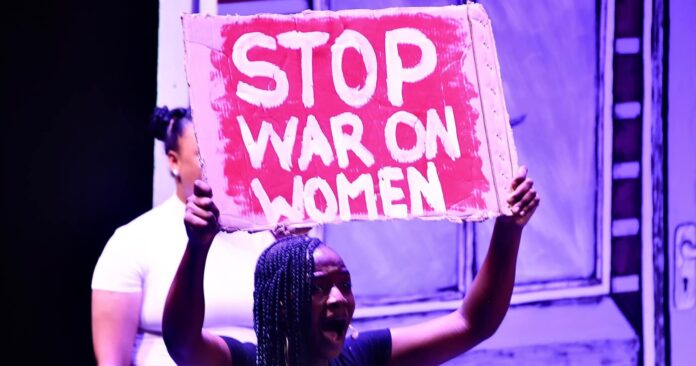Gender-based violence and femicide (GBVF) continue to rear their ugly head in Gauteng despite the provincial government’s various initiatives to fight the scourge.
The recent brutal killing of a Durban Deep teenage girl, Likhona Fose, whose body was found mutilated in an open veld not far from her home, a day after she was reported missing, is one of the horrible cases we have witnessed as a society.
Just last month, another young woman, Sinenhlanhla Mathonsi, was repeatedly stabbed and died at her workplace, a Pick n Pay store at Protea Glen Mall in Soweto. Who can forget the sad case of Olorato Mongale, who was murdered while on a first date with a man she had recently met.
These incidents are not isolated, but they are tragic reminders of the entrenched nature of violence against women in our society. They are just a few of many other cases where women are killed most horrifyingly.
What is more disturbing is that in all these cases, suspects are young men, not older than
40 years.
As we reached the end of observing Youth Month, where we remember the young people of 1976 who fought against the brutal apartheid system, the Gauteng government is calling on young people in the province to join its quest in the task of rebuilding Gauteng to make it a safe province for all.
Young people of today have different struggles to conquer. I believe that young men have a critical role to play in preventing and responding to social ills such as GBVF.
They can be agents of change by challenging harmful social norms, advocating for gender equality, and promoting positive masculinity. We call on them to call their peers out when they witness problematic behaviour.
They must challenge traditional, often harmful, definitions of masculinity and
promote healthier, more equitable relationships.
As a young man, when you witness anything resembling woman abuse, be it in the form of verbal, physical or sexual abuse, say or do something to stop it. Do not be part of the men who engage in any form of sexual harassment, such as catcalling and unwanted touching. Speak up against your friends and peers who do. Don’t look the other way.
We have witnessed how social media can be a great way to share tips and tools for the prevention of violence, and at the same time, it can also be a fertile ground where young people perpetuate gender stereotypes and encourage GBV.
It is important to report any photos and posts you see that exploit or
degrade girls and young women on social media sites such as Facebook, X, Instagram and TikTok.
Calling out those who participate in blaming victims, asking questions such as “what did she do”, is not only harmful, but it absolves the perpetrator from taking accountability. Women and girls should not be blamed for how they choose to dress or have their behaviour judged.
Violence cannot be prevented through limiting the freedoms of women. That only allows the violence to continue because perpetrators are not held accountable, and those who witness the abuse remain silent.
Being violent is a choice, and it is preventable and therefore, avoid making excuses for friends and peers who are violent. Do not support the notion that violence is caused by mental illness, lack of anger management skills, alcohol, stress and drug use, among others.
Everyone has a role to play in preventing and responding to GBV, from individuals and families to communities and institutions. It is not only the government’s responsibility.
The Gauteng government has strengthened some of its interventions in the fight against GBVF, including docket analysis, the establishment of safe houses and shelters for abused women and their children.
A total of 137 victim empowerment/support services were established in all five regions and police stations. These provide support services for more than 50 000 victims.
Thirty-two community safe houses and 23 shelters for abused women and their children have been established.
There has been an enhancement of services at Ikhaya Lethemba to encompass additional forensic medical and medico-legal services, which serve over 8 000 adults and 2 380 children, victims of sexual and/or domestic violence.
Gender-based forums have been established, and a focus on strengthening interventions, family justice support, forensics, conviction rates and many others has led to a reduction in gender-based violence cases.
I urge all communities, especially young men, to come together to condemn gender-based -violence and to work towards creating a safer environment for all women and girls.
Silence is complicity; we must all actively participate in ending gender-based violence.
• Dlamini is a communicator in the Gauteng office of the premier




